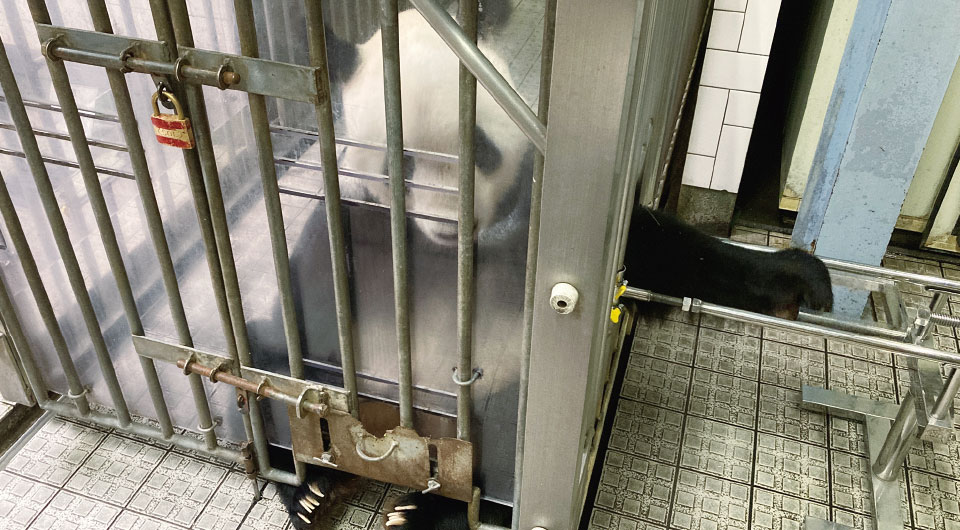

Traditionally, full anesthesia was employed to conduct blood test, x-rays, and other examinations. However, the use of anesthetics was a source of physical and mental stress, and as such it was difficult to carry out these tests frequently. At Adventure World aiming to provide health management and early disease detection with minimal stress placed on the animals, in 2008 we implemented a husbandry training program and successfully collected blood from Eimei for the first time in January 2009. At present we perform a variety of health management examinations including blood sampling, urine sampling, blood pressure measurement, x-rays, and intraoral checks, treatments such as laser therapy and eye drops, and examinations of external genitalia, as well as breeding operations.
-
What Does Husbandry Training Involve?
-
Through husbandry training the animals learn and get accustomed to what they are supposed to do when receiving medical and other care.
-
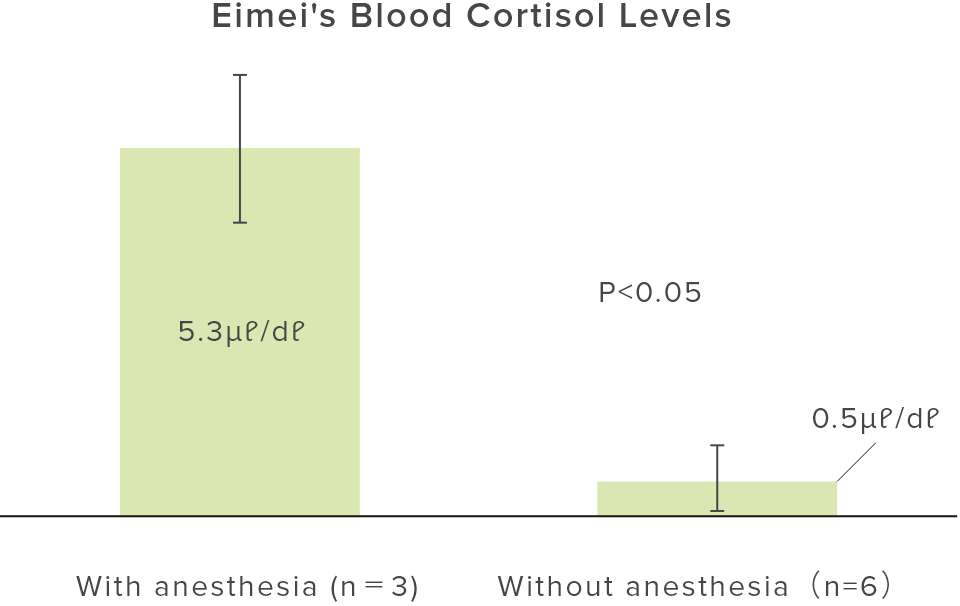
-
Stress Level Comparison by Collection Method
By examining the levels of stress hormones (cortisols) in Eimei's blood both with anesthesia and without, we have seen that while average levels are 5.3 μℓ/dℓ with the use of anesthetics, without their use levels are significantly lower at 0.5 μℓ/dℓ. This demonstrates far lower levels of stress during blood sampling without the use of anesthetics (after successful training).
List of Training Items
| Tests and Examinations | Purpose |
|---|---|
| Blood sampling |
Health) Hematologic assessment, general chemical testing Breeding) Hormonal assessment |
| Fresh urine sampling | Health) Urinalysis Breeding) Hormonal assessment, cytology of exfoliated vaginal mucosal cells, sperm check |
| Mouth check | Health) Intraoral examination (for abrasions, gingivitis, etc.) |
| X-rays | Health) Chest, abdomen, and skeletal examinations |
| Genital observation | Breeding) Male: Measuring testicle size and hardness Breeding) Female: Examining genital size and color |
| Treatment-related operations | Health) Eye drops, corneal damage check and pupil examination, laser treatment |
●Blood Sampling
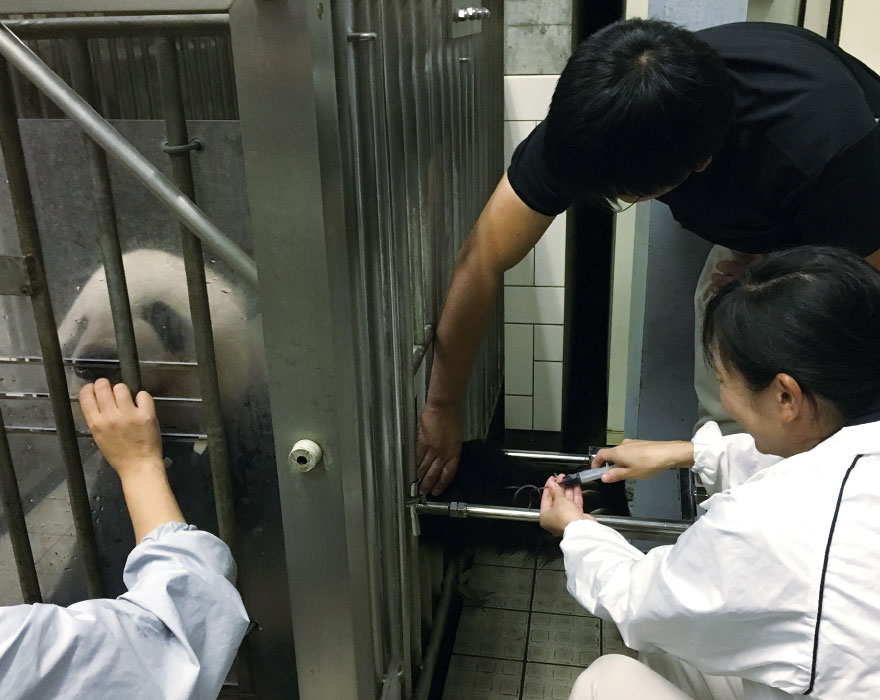
-
① Subject moves to blood sampling cage
② Subject sits in the position to have blood drawn
③ Subject extends an arm and grips a bar
④ Subject has the palm of the bar-gripping side face up while still gripping the bar
⑤ Subject has a tourniquet tied above the elbow (to make veins easier to identify)
⑥ Blood is drawn
●Other Forms of Health Management
-
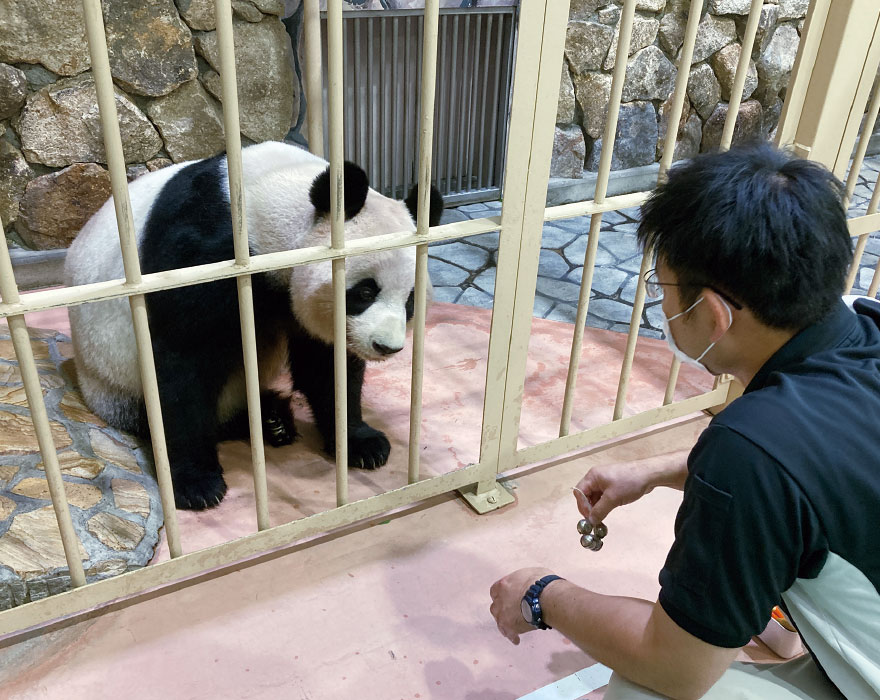
Urine collection
-
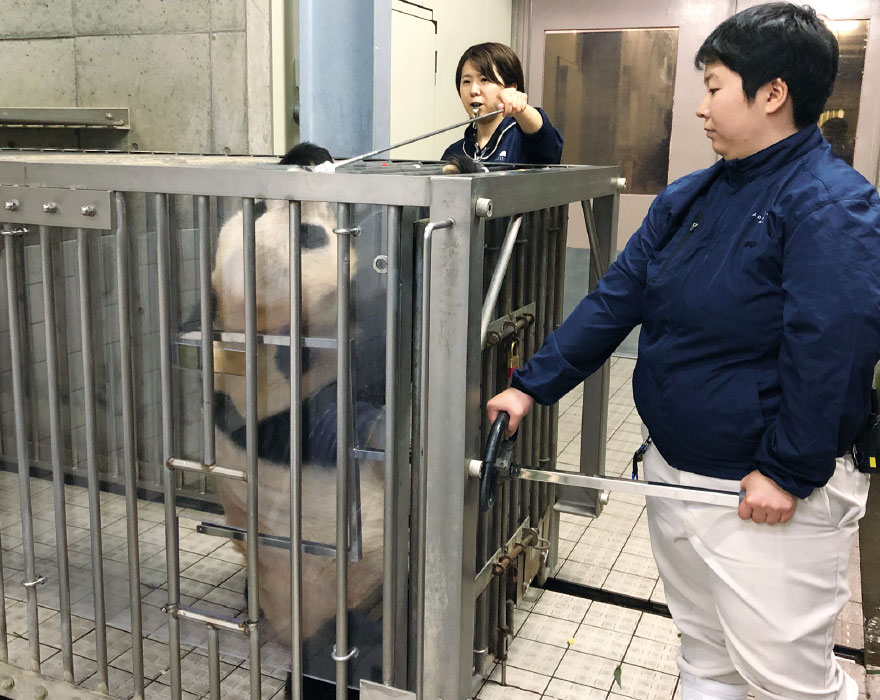
X-rays
-
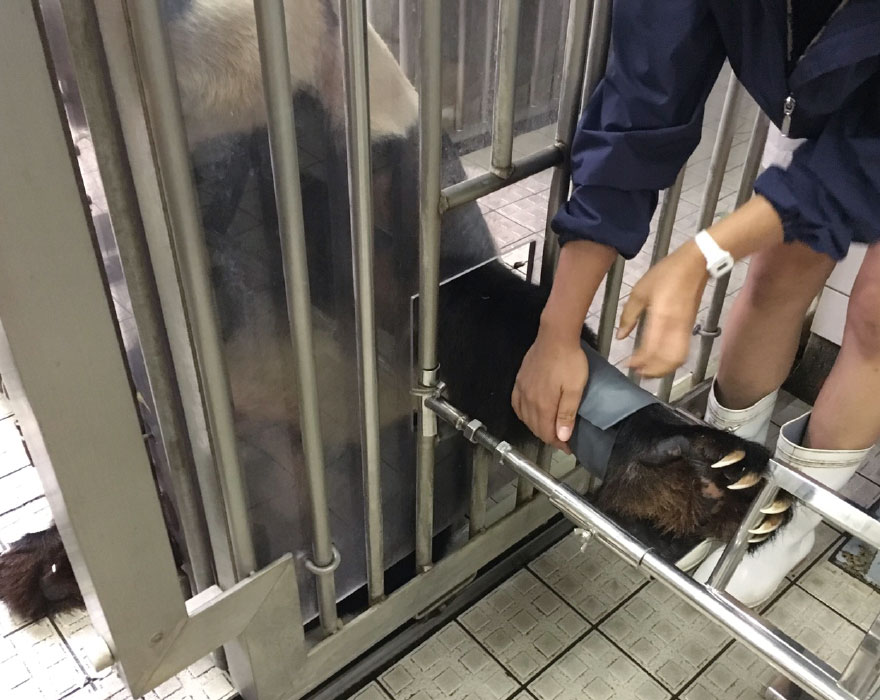
Blood pressure measurement
-
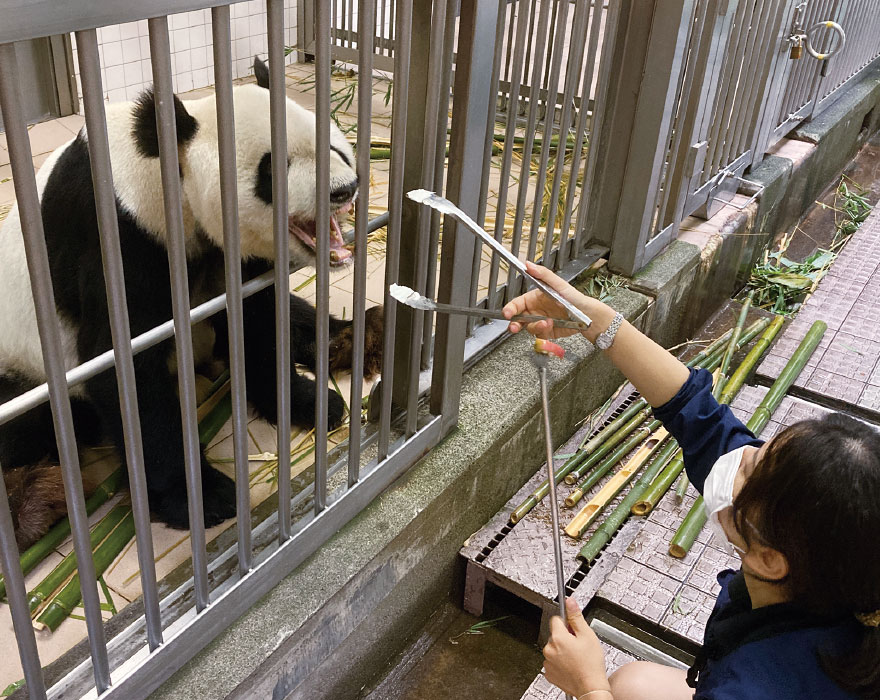
Intraoral examinations
